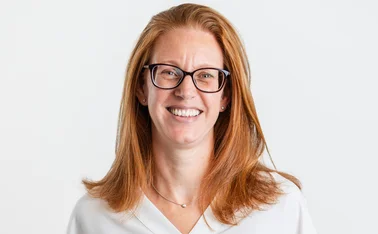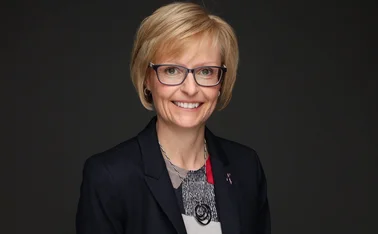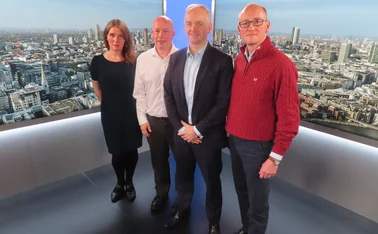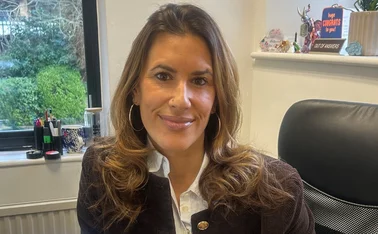
Inquiry slams Ecclesiastical over evidence 'failings' in Church of England child abuse report
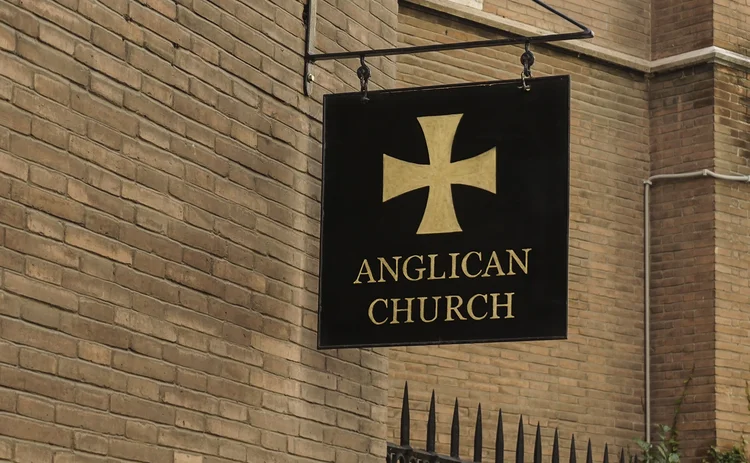
Insurer Ecclesiastical has faced criticism after failing to provide evidence “in a candid manner” during the Independent Inquiry into Child Sexual Abuse’s investigation into Anglican Church abuse.
The report, published today, followed July 2019 hearings in which safeguarding in Church of England and Church in Wales child sexual abuse cases was investigated.
The damning report concluded the church had “failed to protect some children and young people from sexual predators within their midst. In the past, the system of child protection was under-resourced. Safeguarding personnel were at times ignored and their advice overlooked, in favour of protecting the reputation of clergy and the church.”
Insurer Ecclesiastical, described as the church’s “main” insurer in the report, came under the microscope for its handling of church abuse claims, including for failing to supply complete evidence to the inquiry.
Evidence
IICSA noted in its report: “The case of AN-A4 showed the Church of England being provided with unclear advice, the result of which was that pastoral support was withdrawn from a highly vulnerable individual at a time of need.
“This is not acceptable. It is disappointing that the EIO [Ecclesiastical Insurance Office] was unable to recognise or accept its failings in that case upon the publication of the Elliott review. This was compounded by its failure to provide evidence to this Inquiry in a candid manner, requiring us to recall a witness to explain why the information previously given to us was incomplete.”
Former Ecclesiastical claims director David Bonehill and compliance director John Titchener – both of who announced their retirements in 2020 – were re-called to appear before the inquiry in July 2019, where they were forced to concede that the insurer had given advice that had led to the church withdrawing pastoral care for vulnerable abuse claimant AN-A4 for two weeks, with a “profound” effect.
Ecclesiastical, which is also a core participant in IICSA’s Accountability and Reparations investigation, was found to have previously failed to disclose evidence on this to the inquiry, despite having discussed the case with a journalist in the past.
“It was only after Mr Bonehill’s evidence that the Inquiry received further evidence about this dispute, which included the church’s contact log about the AN-A4 case and two recordings of telephone calls between the EIO and a journalist in June 2016,” the report stated.
It added: “Moreover, the public dispute between the church and the EIO failed to take account of the effect that the dispute may have on AN-A4.”
Claims handling
While the IICSA noted that the insurer’s 2016 guiding principles, which set out an agreed framework for handling abuse claims, were “constructive,” it noted these “are only effective if they are followed and if they are reflected in the advice provided to the Church of England.”
Survivor Professor Julie Macfarlane, who co-authored the guiding principles as part of her settlement process with the insurer, has told Post she is concerned Ecclesiastical could not be following the principles due to a lack of concrete measurement.
She said: “Unless it’s actually getting monitored and evaluated, you’re not really going to know if it’s working.”
Adding: “I don’t think it is doing any evaluation. And I imagine that it just has them up there now to make itself look good.”
Today’s report confirmed Ecclesiastical managed 217 Church of England child sexual abuse claims between 2003 and 2018. One of these claims ultimately went to trial.
Limitation
The report further looked at the insurer’s use of the limitation arguments. Insurers have been criticised for by survivors, lawyers and support groups for use of the argument in the past. The Association of British Insurers has backed a review into limitation in CSA cases, while IICSA hearings have been held to discuss potential changes to the law.
In its guiding principles, Ecclesiastical states it will seek not to use the limitation argument in CSA cases. However, the report confirmed it used it in a 2019 case. The insurer has had a moratorium in place on using limitation arguments in CSA cases since February 2020, Bonehill told the inquiry.
The insurer has also faced criticism from survivors over its use of medical experts and the distress caused to claimants who have had to undergo multiple appointments with different experts. According to its guiding principles the insurer pledges to “consider the appropriateness” of using a joint expert agreed with the claimant.
In February Post reported on a 2017 case in which an expert hired by Ecclesiastical attributed just 5% of a survivor’s mental health difficulties on abuse by an individual. The expert had not met the claimant and had based his report on another professional’s summary, with differing conclusions. In a move blasted as “unethical” by a leading bishop and safeguarding expert Ian Elliott, the report was used as a basis to lower the value of a further settlement offer to the claimant, a subject access request showed. The claimant was hospitalised due to suicidal ideation at the time.
The claimant has since complained to the General Medical Council and the expert in question is facing two concurrent investigations, with outcomes ranging from no further action to a referral to the Medical Practitioner Tribunal Service.
IICSA’s report corroborated that victims and survivors had complained about “the impact of the process of producing separate defence psychiatric reports as part of the defence to a legal claim”.
Ecclesiastical told the inquiry it had agreed to use a claimant’s expert in 28 out of its last 30 settled cases, though there was “further work to be done”.
Survivor reactions
Gilo, a survivor of church abuse and co-editor of Letters to a Broken Church, told Post: “It must be profoundly embarrassing for a major corporate business like Ecclesiastical to see itself called out by a government inquiry for lack of candour. That is damning criticism. It is startling that its lawyer, Rory Phillips QC, who only had one client at IICSA, failed to spot that his client was being considerably less than ‘sufficiently full and frank’ in its testimony given under oath.”
Gilo continued: “As an insurer affiliated very closely to the Church of England, this represents further pain to the church, which is already having to square up to an acutely embarrassing report about its failings. Mark Hews [Ecclesiastical CEO] has a mountain to climb to win trust again in the processes his company puts survivors through.”
According to Gilo, there will be “a series of painful conversations between him [Hews] and the Church”.
The survivor further called for Hews to “start inviting survivors to those conversations so that he can incorporate the wisdom we have to offer”.
“More is emerging at present on some of the frankly unscrupulous tactics deployed by Ecclesiastical and its lawyer - desktopping, use of ‘genetic predisposition’ in malevolent psychiatric reports - so the heat is not going away,” Gilo added.
According to Gilo the repercussions of today’s report on the insurer should be “significant.”
He concluded: “It may not be long before dioceses start asking critical questions about the ways in which survivors in their region have been treated by Ecclesiastical. EIG will be in ongoing difficulty over all this. I would welcome a meeting with Mark Hews, with Ian Elliott [safeguarding consultant and author of the Elliott Review] present, so that Mark Hews can give a personal apology and proper redress for the disgraceful way in which he and EIG dissembled around the findings into my case over three years.”
Some survivors have argued the inquiry did not go far enough.
Phil Johnson, chair of church abuse survivor support group Macsas, said: “The report is right to point out that while there have been improvements in safeguarding, there is still a long way to go to rebuild the trust of victims and survivors. Their treatment has often been woefully inadequate and has been hampered by the church’s unhealthy and incestuous relationship with its insurer, Ecclesiastical and it is a missed opportunity for the inquiry not to have dug deeper into this issue.”
For a list of support services please visit: https://www.truthproject.org.uk/help-and-support#1738240464
Response
A spokesperson for Ecclesiastical said: “We welcome IICSA’s report on the Anglican Church investigation and the insights it gives into the best possible ways to better safeguard children and how to improve the treatment of victims and survivors when disclosing abuse.
“The experience of bringing an insurance claim can be traumatic for victims and survivors within the adversarial civil justice system in which we operate and we always aim to handle claims with empathy and sensitivity, as embodied in our survivor-centred guiding principles, which the report endorses as ‘constructive’.
“As reflected in our closing submission, we regret our part in the misunderstanding that led a church policyholder to withdraw pastoral support for one particular survivor and the way that we defended our position in relation to that issue. We also regret that the extent of previous disclosures of some specific information requested by the Inquiry on that case was not fully appreciated at the time, delaying its submission. We have sought to be a supportive and cooperative participant in the IICSA process throughout and strive for the highest standards of claims management in the industry.
“As an insurer, we are committed to the continual improvement of our guiding principles and claims handling processes for the wellbeing of victims and survivors. This includes working with the Association of Child Abuse Lawyers, child protection charity The Lucy Faithfull Foundation and psychological rehabilitation specialists Moving Minds to ensure claimants can receive the support and counselling they need. We thank the Inquiry for its work and will study the report closely to see how it can inform further improvements.”
In a statement, the Church of England said: “The report makes shocking reading and while apologies will never take away the effects of abuse on victims and survivors, we today want to express our shame about the events that have made those apologies necessary. The whole church must learn lessons from this Inquiry.
“Our main focus in response must be recognising the distress caused to victims and survivors by the church’s failures in safeguarding. We wholeheartedly endorse the importance of the report’s recommendations for improving our support for victims and survivors, to which we are completely committed.
“We note the recommendation regarding the structure of safeguarding and the church is committed to looking at how best to implement greater independent oversight. There are also important recommendations regarding revision of the Clergy Discipline Measure, information sharing between
“Churches and statutory partners, and external auditing of the church’s safeguarding work.
“As we said in our final submission to IICSA, despite the important steps that it has taken, the church still has much more work to do to get safeguarding right.
“While there has been some improvement in recent years, we wholeheartedly regret that in some areas, most importantly support for victims and survivors, progress has been too slow.
“The motion unanimously passed at the February sessions of the General Synod shows our commitment to a more fully victim and survivor centred approach including arrangements for redress, which are already underway.
“We thank the Inquiry for its in-depth work over the past five years and we note that there will be further proposals on the important areas of mandatory reporting and the Seal of the Confessional.
“We will now study the recommendations published today, with a full response to be released in the coming weeks.
“We acknowledge how difficult reading this report may be, particularly for victims, survivors and those close to them.”
Only users who have a paid subscription or are part of a corporate subscription are able to print or copy content.
To access these options, along with all other subscription benefits, please contact info@postonline.co.uk or view our subscription options here: https://subscriptions.postonline.co.uk/subscribe
You are currently unable to print this content. Please contact info@postonline.co.uk to find out more.
You are currently unable to copy this content. Please contact info@postonline.co.uk to find out more.
Copyright Infopro Digital Limited. All rights reserved.
As outlined in our terms and conditions, https://www.infopro-digital.com/terms-and-conditions/subscriptions/ (point 2.4), printing is limited to a single copy.
If you would like to purchase additional rights please email info@postonline.co.uk
Copyright Infopro Digital Limited. All rights reserved.
You may share this content using our article tools. As outlined in our terms and conditions, https://www.infopro-digital.com/terms-and-conditions/subscriptions/ (clause 2.4), an Authorised User may only make one copy of the materials for their own personal use. You must also comply with the restrictions in clause 2.5.
If you would like to purchase additional rights please email info@postonline.co.uk

